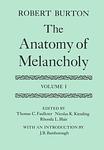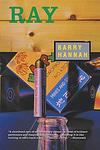The Greatest "Satire, Medicine" Books of All Time
Click to learn how this list is calculated.
This list represents a comprehensive and trusted collection of the greatest books. Developed through a specialized algorithm, it brings together 300 'best of' book lists to form a definitive guide to the world's most acclaimed books. For those interested in how these books are chosen, additional details can be found on the rankings page.
Genres
Satire is a genre of literature that uses humor, irony, and exaggeration to criticize and ridicule human vices, follies, and shortcomings. It is a form of social commentary that aims to expose the flaws and absurdities of society, politics, and culture. Satirical books often employ sarcasm, wit, and parody to challenge the status quo and provoke thought and reflection in readers. Satire can be both entertaining and thought-provoking, and it has been used throughout history as a powerful tool for social and political critique.
The "Medicine" category of books encompasses a wide range of topics related to healthcare, including medical research, clinical practice, pharmacology, and public health. These books may cover topics such as disease prevention, diagnosis, treatment, and management, as well as the social, ethical, and political issues surrounding healthcare. The category includes both academic and popular works, and is intended for healthcare professionals, students, and anyone interested in learning more about medicine and healthcare.
Countries
Date Range
Reading Statistics
Click the button below to see how many of these books you've read!
Download
If you're interested in downloading this list as a CSV file for use in a spreadsheet application, you can easily do so by clicking the button below. Please note that to ensure a manageable file size and faster download, the CSV will include details for only the first 500 books.
Download-
1. Journey to the End of The Night by Louis-Ferdinand Céline
The novel is a semi-autobiographical work that explores the harsh realities of life through the cynical and disillusioned eyes of the protagonist. The narrative follows his experiences from the trenches of World War I, through the African jungles, to the streets of America and the slums of Paris, showcasing the horrors of war, colonialism, and the dark side of human nature. The protagonist's journey is marked by his struggle with despair, loneliness, and the absurdity of existence, offering a bleak yet profound commentary on the human condition.
-
2. Main Street by Sinclair Lewis
This novel is a satirical critique of small-town life, following the story of a young, ambitious woman who moves from the city to a quiet, conservative town in the Midwest with her new husband. Despite her attempts to bring culture and progress to the town, she is met with resistance and ostracism from the closed-minded locals. The protagonist's struggle against traditional norms and her ultimate disillusionment highlight the stifling conformity and lack of intellectual stimulation in rural America.
-
3. Decline and Fall by Evelyn Waugh
This novel follows the story of Paul Pennyfeather, a young man studying at Oxford University who is unfairly expelled and forced to take a job as a teacher at a chaotic school in Wales. His life takes a turn when he meets a wealthy widow and gets sucked into the high society lifestyle, only to be betrayed and sent to prison. The narrative is a satirical critique of the British class system, education, and the moral corruption of the rich.
-
4. The Anatomy of Melancholy by Robert Burton
"The Anatomy of Melancholy" is a comprehensive and detailed exploration of melancholy, a term used to describe a variety of mental states, including depression, anxiety, and sadness. The author examines the causes, symptoms, and treatments of melancholy from a variety of perspectives, incorporating elements of psychology, philosophy, history, and literature. The book is notable for its extensive use of classical sources, its humorous and satirical style, and its profound insights into human nature and the human condition.
-
5. Arrowsmith by Sinclair Lewis
The novel follows the life of a bright and dedicated young man, Martin Arrowsmith, who dreams of making significant contributions to medical science. He faces a constant struggle between his ambition and the demands of his professional and personal life. His journey takes him from a small Midwestern town to the prestigious universities of the East Coast, and eventually to a deadly outbreak in the Caribbean. Throughout his journey, he grapples with the corruption, greed, and mediocrity that he finds pervading the medical field, all while trying to remain true to his scientific ideals.
-
6. The Cunning Man by Robertson Davies
The novel follows the life of a Toronto doctor who uses his knowledge of medicine and his understanding of human nature to treat his patients. He believes in the healing power of the human spirit and often uses unconventional methods to treat his patients. The narrative is filled with his interesting patients and their stories, as well as his own personal journey. The book also explores themes of spirituality, love, and the complexities of human nature.
-
7. Cain by José Saramago
The novel explores the biblical story of Cain and Abel from the perspective of Cain, after he murdered his brother. The author reimagines the Old Testament by having Cain time travel to key events and interact with biblical figures such as Noah and Abraham, challenging the traditional interpretations of morality, justice, and faith. Cain's journey reveals a critical view of God and the paradoxes of the human condition.
-
8. Ray by Barry Hannah
"Ray" is a darkly comedic and deeply moving novel about a Vietnam War veteran and former pilot who is grappling with his past and his own self-destructive tendencies. The protagonist's candid, often rambling monologues reveal his struggles with alcoholism, his failed marriages, and his complicated relationships with women, as well as his reflections on life, death, and the human condition. Set in the American South, the novel is a raw and poignant exploration of a flawed man's search for meaning and redemption.
-
9. Poor Things by Alasdair Gray
"Poor Things" revolves around the life of Bella Baxter, a woman who is brought back from the dead by a Victorian-era doctor who replaces her brain with that of the fetus she was carrying at the time of her death. The book explores Bella's life as she grows up with the mind of a child but the body of a woman, her marriage to a man who tries to control her, and her eventual escape and journey of self-discovery. The narrative is presented through various documents and viewpoints, providing a complex and thought-provoking look at themes such as love, identity, and the nature of humanity.
Reading Statistics
Click the button below to see how many of these books you've read!
Download
If you're interested in downloading this list as a CSV file for use in a spreadsheet application, you can easily do so by clicking the button below. Please note that to ensure a manageable file size and faster download, the CSV will include details for only the first 500 books.
Download







